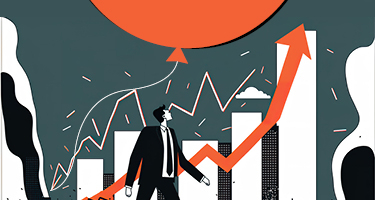The effects of climate change are becoming both more obvious and more destructive: This July was the hottest month ever on record; this year has seen the worst wildfire season in Canadian history; and extreme weather is occurring worldwide with increasing frequency.
As these events intensify, so too do public expectations for corporate action. Shareholders and other stakeholders are calling upon companies to do more, and faster, to preserve the chance of limiting global warming to 1.5 degree Celsius. As public expectations ratchet upward, businesses struggle to keep up. Although corporate action on climate change was seen, even recently, as a progressive way to create a first-mover business advantage, it is now seen as the bare minimum of good corporate citizenship.
Any time public expectations evolve quickly, the pace at which businesses respond is uneven. That disconnect has caused activists to question whether most, even all, corporate claims on climate are mere “greenwashing.” Trade and competition regulators, such as Canada’s Competition Bureau and the U.K.’s Competition and Markets Authority, are dedicating more resources to investigating consumer and public greenwashing complaints. Lawmakers in multiple jurisdictions are considering legislation to regulate the use of buzzwords like “sustainable” and “net zero” in product marketing. Delta Airlines’ claim to be “the world’s first carbon-neutral airline” is being challenged in American courts, and clothing retailer H&M has faced lawsuits over the sustainability claims it makes for its Conscious clothing line.
These trends create a dilemma for responsible corporate citizens: Say too much and get criticized for greenwashing; say too little and get criticized for inaction. Some companies are responding by remaining silent (often referred to as “greenhushing”). But failing to share information about corporate climate actions merely swaps one set of risks for another. It might protect a business from a greenwashing claim, but it creates potential market and reputational perils. Worse still, it can lead to a corporate culture in which business risks associated with climate change are minimized or simply assumed away. The better response is to address head-on the challenge of taking corporate action and communicate honestly and effectively about that action.
Take, for example, the hot-button issue of carbon offsets. Press reports from early 2023 triggered renewed public concern over the integrity of voluntary carbon-offset markets and corporations’ use of offsets to achieve their net-zero goals. The European Parliament even introduced legislation this May banning carbon neutrality claims based solely on offsets. International bodies such as the Voluntary Carbon Market Integrity initiative (VCMI) and Science-Based Targets Initiative (SBTi) have proposed standards that would substantially alter how corporations can characterize their contributions to climate projects that will make using carbon offsets to economically achieve their net-zero goals difficult or impossible.
...failing to share information about corporate climate actions merely swaps one set of risks for another. It might protect a business from a greenwashing claim, but it creates potential market and reputational perils."
While general concerns over the integrity of voluntary carbon markets are overblown, companies do need to pay more attention to transparency and accountability when participating in them. They should only purchase high-quality offsets (i.e., offsets that provide all the benefits that they claim to, are additional, verifiable, not claimed by another entity, and not associated with adverse social or environmental impacts), and invest in the due diligence and professional advice required to ensure that the contributions they’re making through offsets can be demonstrated to a skeptical public. More broadly, clearly stating what the corporation’s plan is, which specific actions it’s taking and how it’s performing against its goals are key components of climate communications. Providing more information about climate goals and even about the setbacks it has experienced along the way can increase its credibility and help protect against claims of greenwashing.
Looking ahead, it’s critical that businesses consistently evaluate not only the robustness of their climate plans but also the risks associated with their communications. Stakeholders are more educated about climate change than ever before, and corporations need to meet higher standards as a result. Staying silent will only lead to increased risk in a world that increasingly assumes that corporations that say nothing are doing nothing good.
Kai Alderson is a partner in Fasken’s energy and natural resources group in Vancouver. He provides strategic advice to industrial emitters and financial intermediaries on climate-related policy matters and has extensive experience advising clients on climate-related corporate disclosures, climate-related product marketing and decarbonization initiatives. He also advises on voluntary carbon market transactions and the development of innovative, high-quality carbon offset projects.
Emilie Bundock is a partner in Fasken’smining, energy and climate group in Montréal. Over the years, she has developed a niche expertise in climate change law and in carbon trading. She regularly advises clients involved in transactions that include greenhouse gas emission units and environmental attributes, both on the regulated and voluntary markets, including in the Québec-California cap-and-trade system.





























